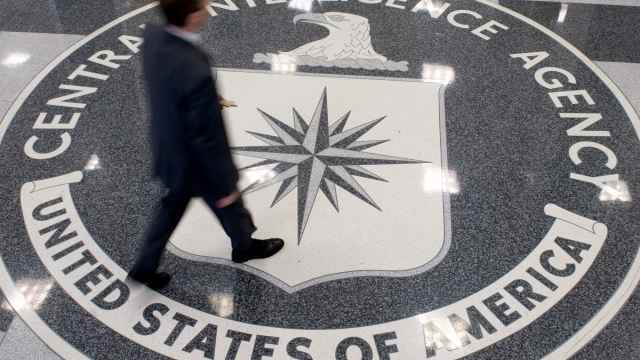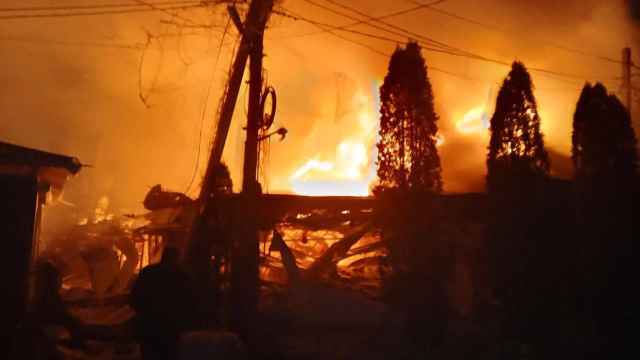Finance Minister Anton Siluanov on Friday advanced the idea of cutting government-funded jobs in a bid to reduce the growing strain on the federal budget.
He made the proposal as he became alarmingly repetitive in pushing for austerity at a Cabinet meeting that reviewed the first draft of next year’s federal spending, projected at 13.4 trillion rubles ($411 billion).
“We still have the potential to raise the efficiency and productivity of labor in the budget-funded sectors,” he said. “This is what we need to pay attention to first of all.”
Russia’s numbers for employment in the sectors — such as public service, state-funded health care and education — are the biggest worldwide for every 1,000 people, he said.
It was unclear how the Cabinet reacted to the proposal because the broadcast of the meeting ended, as is customary, after the first speaker, Siluanov, ended his report.
While still on camera, Siluanov applied pressure, again and again, to prevent the other ministries from seeking more funding. When the global economy appears to rest on feet of clay, exposure must go down, he said.
“It is, in our view, inadvisable to consider any questions about raising budget spending,” Siluanov said close to the start of his speech.
According to Siluanov, 76 percent of federal spending next year will consist of social and other obligations that must be the last to decline if revenues fall short.
The number is up from 70 percent this year.
It includes defense, security and law enforcement spending, which will account for one-third of the budget’s total next year.
The rest is state investment in roads, bridges and airports.
Russia derives half its revenues from the production and export of oil and gas. Stressing the country’s vulnerability, the oil price has dipped considerably in recent weeks, much below the $115 a barrel that underlies this year’s budget.
Next year’s spending is growing by 642 billion rubles, or 5 percent. When inflation, expected to be 6 percent this year, enters the picture, that growth becomes a decline in real value.
“The first thing I’d like to say is that experts have described next year’s budget as tough,” Prime Minister Dmitry Medvedev said in opening the Cabinet meeting. “And that description is, perhaps, generally substantiated.”
Medvedev appears to have sided with the fiscal hawks in defining the cornerstone of the budget: the oil price assumption. It is $92 a barrel, based on the median level in 2007-11, as the Finance Ministry insisted.
First Deputy Prime Minister Igor Shuvalov and some other Cabinet members wanted to index this price to inflation.
The budget deficit will be 1.5 percent of gross domestic product next year.
Closing his speech, Siluanov couldn’t help one reiteration.
“The goal today is to reduce budgetary risks,” he said. “I believe that it is inappropriate to hope for any additional allocations.”
A Message from The Moscow Times:
Dear readers,
We are facing unprecedented challenges. Russia's Prosecutor General's Office has designated The Moscow Times as an "undesirable" organization, criminalizing our work and putting our staff at risk of prosecution. This follows our earlier unjust labeling as a "foreign agent."
These actions are direct attempts to silence independent journalism in Russia. The authorities claim our work "discredits the decisions of the Russian leadership." We see things differently: we strive to provide accurate, unbiased reporting on Russia.
We, the journalists of The Moscow Times, refuse to be silenced. But to continue our work, we need your help.
Your support, no matter how small, makes a world of difference. If you can, please support us monthly starting from just $2. It's quick to set up, and every contribution makes a significant impact.
By supporting The Moscow Times, you're defending open, independent journalism in the face of repression. Thank you for standing with us.
Remind me later.






